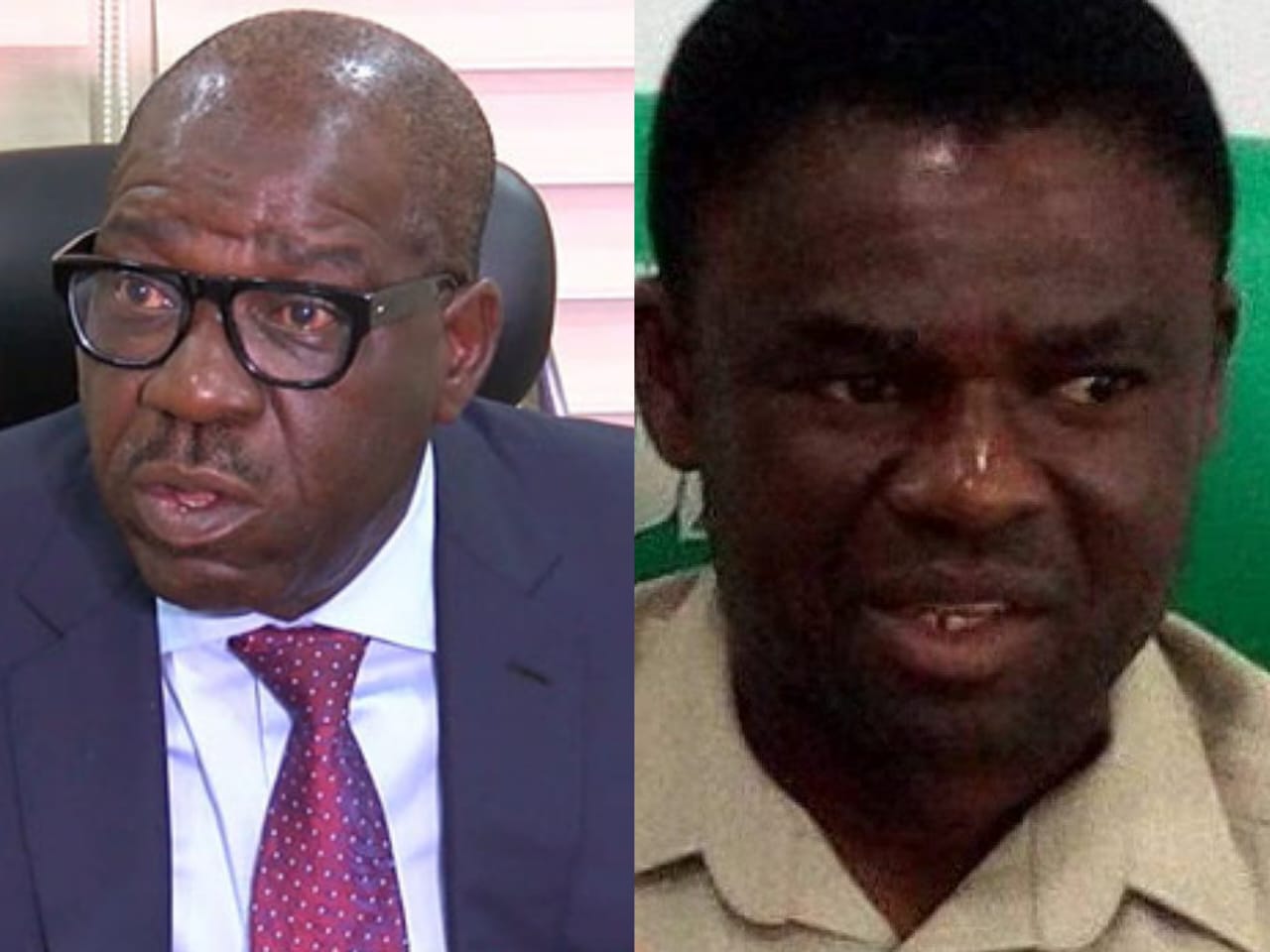Headlines
Gov. Obaseki’s attempt to remove Deputy Philip Shuaib from office is put on hold by the court

A interim injunction given by a Federal High Court in Abuja has halted the attempt by the governor of Edo State, Godwin Obaseki, to remove his deputy, Phillip Shuaib, due to their unresolvable issues.
A motion on notice submitted by Shuaib asking the court to stop his principal’s attempt to ease him out of office was heard by Justice Ahmed Ramat Mohammed on Friday, and the judge issued the temporary order as part of his ruling.
Justice Mohammed instructed the parties in the lawsuit to maintain “Status Quo Ante Bellum” in his decision on the application presented by Moses Ebute SAN from the Abuja offices of Ogwu James Onoja SAN.
The status quo ante bellum order, which was made public on Friday, will remain in effect until the defendants are required to provide justification as specified in a subsequent court decision issued on July 27, 2023.
The parties are to continue in their respective positions from before Shuaib’s lawsuit designated FHC/ABJ/ CS/1027/2023 was filed against the defendants, in accordance with the rule of “status quo ante bellum.”
The defendants are, from first to fifth, the Chief Judge of Edo State, the Inspector General of Police (IGP), the State Security Service (SSS), Edo Governor, Godwin Obaseki, Speaker of the Edo State House of Assembly, and the Inspector General of Police (IGP).
Both the Chief Judge and the Speaker of the Edo State House of Assembly, who opposed granting Shuaib’s motion but lost in the Court’s decision, were represented at the proceedings on Friday by counsels, Okotie Eboh and Francis Ogbe.
Following the judgement, Justice Mohammed rescheduled the hearing in the case for August 10 and commanded that the IGP, SSS, and Obaseki—who weren’t represented in court—be served with hearing notices.
In his original summons, Shaibu asked the court to decide whether Governor Obaseki has the authority to direct the IGP and SSS to harass, intimidate, or molestate him and prevent him from accessing his office to perform his constitutionally guaranteed duties. This was done in light of the provisions of sections 186 and 193 of the 1999 Constitution.
In addition, he asked the court to determine whether the Governor has the authority to request that the Speaker and the Chief Judge initiate impeachment proceedings against him in order to remove him from office on any other basis than accusations of misconduct, as provided for in section 188 of the 1999 Constitution.
The Deputy Governor also asked the court to rule on whether Obaseki can purposefully refuse to accompany him to or notify him of the State Executive Council (SEC) Meeting or any other meetings or functions inside or outside of Edo without breaking the express terms of the law in light of the provisions of section 193 of the 1999 Constitution.
Shuaib requested that the court rule that the IGP, SSS, and Obaseki had no authority to intimidate, harass, embarrass, or molestation him following favourable resolutions of the issues in his favour.
He further requested that the Court rule that Obaseki, the Speaker, and the Chief Judge lacked the authority to remove him from office on any grounds other than grave misconduct, and that the Speaker and Chief Judge, concurrently, lacked the authority to appoint a 7-man panel of inquiry on the same basis.
Shuaib asked for a court order of injunction to stop the IGP, SSS, and Obaseki, as well as their agents and privies, from harassing, embarrassing, or intimidating him or him from performing his legal duties.
In addition, he requested an order of injunction prohibiting Obaseki, the Speaker, and the Chief Judge from acting in any way that would further the impeachment process, as well as a separate order specifically prohibiting the Chief Judge from following Obaseki’s and the Speaker’s instructions to form any panel of inquiry with the intention of removing him from office.
Until August 10, the case has been postponed.
